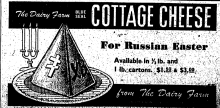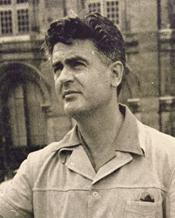IDJ has written about Russian food and eateries in Hong Kong.
Nona has written about the Russian families she knew in Hong Kong in the 1950s, and also includes notes from Richard Morgan about Russian members of the Police Force and the HKVDC: http://pio-ulski.com/russians-in-hong-kong/
If you can add any memories, photos, or other information, please let us know in the comments below.
Type
Other
Status
Active
Photos of this organisation:
(see more)Has member(s)


Comments
Russian lady Hong Kong island
Hello,
I lived in Hong Kong between 1966-1985 and my mother befriended an impoverished elderly White Russian lady called Susanna who escaped from Shanghai shortly after the Communists took power in 1949. I can remember very little else except she used to call me `Apple` (!),threw food out of an upper window for me and lived in a block of flats on the Western side of HK island.She must have been in her early 80s in the late 1970s.
i`ll try and find out more.
Rich
In his 2007 book Where
In his 2007 book Where Empires Collided: Russian and Soviet Relations with Hong Kong, Taiwan and Macao Michael B. Share estimates the number of White Russians in Hong Kong as never more than just over 100 people (p. 93). He says its members ran ' several restaurants, tailor shops, and small food stores'. He also mentions the contingent in the Police and points to the central role played by Archpriest Dimitry Upsensky from 1934 onwards.
We can add to this the role played by Russians in the arts (George Pio-Ulski, George Goncharoff, Preorbazhensky and probably others).
I wonder if just over 100 is a little low?
My incomplete list of
My incomplete list of Russians who were living outside the camps at the start of the occupation has about 60 names on it (including children).
On the one hand:
some of these people had probably taken the nationality of their spouse after marriage;
the list certainly includes a number of people who had become British citizens by naturalisation.
On the other hand:
half of those 60 people were granted assistance by the Red Cross in 1942 - most for living expenses, a few to go to Shanghai or Macao; the vast majority of these were women, and some or most of these would have had husbands in the camps.
Size of Russian community in HK
From your figures it looks as though it'll be easy to reach 100 people. Maybe 100 families?
It'll be interesting to see how this list grows over time.
The Russian Jewish community
Barbara Mackenzie remembers the community in the 1950s & 60s:
We are Jewish so my parents (Eric and Reva GABRIEL) tended to mix with Russians they knew from Shanghai at the JRC (70 Robinson Rd)... Zirinski's, Bard's, Godkins, Eda and Joe Close (he worked for the Star Ferry) - of course the Kadoories were also members but they are Iraqi originally and weren't really in the Russian Crowd.
Occasionally we had the odd Russian refugee stay with us transiting in HK on their way to South America.
I also went to school with Alexy Gavrilov though he is a bit younger than me!
Numbers
The 'Papers' collected by Colin Gimson and now in the University of Hong Kong Special Collections contains a list of Russians that I think was compiled for the 1931 ten year 'super census'. By my count it gives about 190 'stateless' males and 130 'stateless' females. Interestingly there's a separate list of USSR citizens: 11 males and 9 females. One of the males is described as an 'exporter' which would suggest some trade links between Hong Kong and the USSR. One of the females was a 'milliner' which suggests she was allowed to pursue her profession.
There would have been a lot of chopping and changing by 1941 but this supports my hunch that there were about 200 Russians (taking the word in its widest sense) in Hong Kong during the occupation.
I've found one source that states Russians were banned from the Colony for a number of years. I've not been able to validate this, nor do I know, if true, if the ban applied to Soviet citizens, 'stateless' refugees, or both.
Barbara Mackenzie
Hi David,
I was interested to read about Barbara Mackenzie and her memoires of the Russian Jewish community in HK - do you know if she recorded an oral history I interview I could take a look at?
Thank you!
Best wishes,
Amelia
re: Barbara Mackenzie
Hi Amelia,
Barbara has previously said she'll write down some history of her family to share with us. I'll ask if that's available, or any oral history.
Regards, David
I'm working on some research…
I'm working on some research related to Russians who left northern China in the mid-twentieth century and eventually made their way to Hong Kong. Attached -- A few tidbits on historical individuals and related content, mostly from visits to the Hong Kong Government Records Service archives this summer --
A good deal of the Russians I have come across appear to have either largely avoided politics or been avowedly anti-communist. Maybe this is a little unsurprising from a group living in China and Hong Kong--rather than the Soviet Union--partly as result of having chosen 'statelessness' instead of Soviet citizenship when that choice faced them in 1920s+ Harbin or Shanghai, for instance. One finds particular evidence in accounts like a Mr. Fletcher's 1948 appeal to Hong Kong Immigration to allow his White Russian adoptive daughter (Vera Larsen, born 1924 in Harbin, Shanghai resident by 1940s) into Hong Kong on the basis of her political-ideological stamina: In Shanghai, she had apparently resisted 'considerable propaganda and pressure' to obtain Soviet citizenship, presumably from the consulate there but unclear from the text. Others--former White Russian general Vladimir Boutskoi, for instance--made a case for entry on a similar political/ideological basis.
That said, I have noticed several cases in which Russians in Hong Kong felt quite differently about the Soviet Union and their place in it. Born in Bordzia, Russia, Boris Markoff migrated with his parents to Harbin, where his brother worked on the China Eastern Railway as Boris grew up. When the offer came ca. 1921, Boris's family, including Boris, became Soviet citizens. Somehow, though, by 1946 he was living in Hong Kong. He had no Soviet passport but felt like a Soviet national and hoped to return at least to the Russian-Soviet community in Harbin, if not beyond. He makes it into the Hong Kong Govt Record Service Immigration files with his February 1946 plea to travel to Shanghai, where he plans to obtain a Soviet passport en route northward. Alexander Bikeikin's story is similar: He, too, claims Soviet citizenship but lacks a passport to get from Hong Kong back to Soviet Russia, where--at least by May 1946--he would like to be.
Would be happy to share more if useful! Would also value learning about personal experiences, e.g. of family members, relating to the 1930s-1970s Hong Kong Russian community, from those willing to share. (I have already learned so much from Gwulo!)
Political preferences
I'd assumed that the Russians who arrived in Hong Kong in the 1930s-40s had left Russia because they were fleeing the Communists, so it is interesting to read your notes about Boris Markoff and Alexander Bikeikin trying to get back to Russia. Thanks for posting.
HK Russians during WWII
How did the Russian community in HK experience WWII? Did businesses stay open? Did the church stay open? What kind of status did they have as stateless people? Were they involved in the British war effort?
I've come across a few nods to their wartime activities in HKU archives and elsewhere. For instance, among lists of people not interned during WWII, Russians (separate from Soviets) made up the largest group by nationality. As of 1942, one list counts 325 Russians in Hong Kong, with a rather big gender imbalance (~3:1 male: female). I have also come across tidbits about their professional activities in HK as of 1942: For instance, they seem to have been well-integrating into the teaching profession. In fact, Russians appear to be the only national group with females who were teachers among those on the 1942 list of of non-interned groups. Many engineers also came to Hong Kong from Harbin. (This was not so unusual: The majority of Russians repatriated back to the Soviet Union in the 1950s were, similarly, engineers of one kind or another.) Indeed, I found an account of one Harbin Russian who lectured in engineering at HKU by day and taught engineering to six apprentices by night in the 1940s! I think it's also interesting to note how different this professional landscape among stateless Russians looked by comparison to professions among Soviet citizens in HK during World War II. The majority of Soviet citizens in 1942 appear to have worked in blue-collar type jobs.
re: HK Russians during WWII
There were Russians in the each of the three main groups: POWs, civilian internees, and uninterned civilian third nationals. As a quick example of some of the first two groups, search for "sky" on the lists of POWs and civilian internees to show some of the Russian names.
Among the civilians, I think whether they were interned or not would have depended on whether or not they had taken British citizenship.
Some examples of the experiences of the uninterned group:
Yes I have an example in my…
Yes I have an example in my family of a stateless Russian woman who married a British man and was subsequently interned due to being a British spouse - but that was in Shanghai. I suppose that could have happened in HK too.